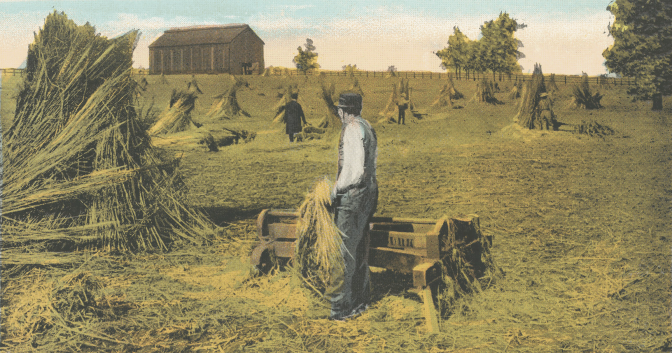Hemp’s Long Road to Respectability

Perhaps no other plant has as long standing a relationship with humans as hemp. In addition to a millennia-long hemp history, it is grown on every continent except Antarctica.
Scraps of hemp cloth have been dated to 8000 BCE, and hemp paper has been around since 150 BCE. It’s believed that China has been cultivating hemp continuously for some 7,000 years. China now grows more than 70% of the world’s annual output.
According to hemp history expert John Dvorak, founder of Hempology.org, the 1500s to 1800s, when ships ruled the world, were hemp’s heyday. “Hemp was huge for all the rigging, cordage and sails,” he tells Freedom Leaf. “They used ships for commerce, exploration and defense. It was essential to have a strong Navy, so hemp was very important.”
“All those ships don’t just have hemp ropes to rig them,” exclaims Eric Steenstra, cofounder and president of Vote Hemp. “They had hemp sails, and even the material that essentially kept the boats afloat, oakum, was made of hemp and pine tar.”
During the Colonial era, Thomas Jefferson and George Washington both grew hemp and colonists were required by law to sow the versatile plant. By 1810, hemp was primarily used for linen, canvas and paper. Hemp’s stronghold was Kentucky, but without unpaid slave labor to process it, it began to decline after the Civil War.
Hemp production also decreased as steamships replaced sailing vessels in the late 19th century. By 1899, only 16,000 acres of hemp were sown in the U.S. “People weren’t growing hemp,” Dvorak explains. “The demand was low because of the steam engine and there were other, cheaper fibers like jute. The hemp industry was dead as a doornail in 1900, based on just regular supply and demand.”
When the Marihuana Tax Act was enacted in 1937, hemp history was forever caught in the dragnet for its psychoactive cousin, marijuana. It made a brief comeback during World War II with the “Hemp For Victory” government campaign that rallied farmers to cultivate the versatile crop for the war effort.
Enter Jack Herer, author of the hemp history manifesto The Emperor Wears No Clothes and discoverer of the Hemp for Victory short film. “The biggest highlight post 1970 is the publication of Jack’s book,” says Steenstra. “That’s how I first learned about hemp. I think you could find thousands and thousands of people who’ve been educated by Jack’s book. He single handedly brought back the knowledge about hemp and cannabis.”
Herer’s book, published in 1985 and revised several times since then, has sold more than 600,000 copies worldwide. It’s also available for free at JackHerer.com, a site maintained by his widow, Jeannie.
“We probably wouldn’t be talking about hemp if it wasn’t for Jack and his book and everything he did for hemp and marijuana,” Dvorak adds.
More recently, a big step forward for hemp was Section 7606 of the 2014 Farm Bill (Legitimacy of Industrial Hemp Research), which allows pilot programs in association with universities to research industrial hemp. “Our 2016 crop report showed 800 licensed hemp growers under the pilot program, 9,600 acres planted and 30 universities conducting research,” Steenstra says excitedly. “The farm bill has really opened the door for hemp to make a comeback.”
He sees great promise in technologies like hemp-derived carbon nanosheets resembling graphene, products for home and car building, and the rise of the industrial hemp/CBD market. Steensta also expects the Industrial Farming Act (HR 3530) to pass, which would open up state commercial markets and usher in more investments. “The future is figuring out how to extract the maximum value of the plant,” he notes.
If industrialization killed hemp, it could be capitalism that resurrects it. “I really think we’re building a trillion-dollar industry,” crows Dvorak. “You’ve heard of the dot-com era? This is the dot-bong era, and it’s going to blow that away. This is a disruptive innovation, like cell phones. We’re taking control of our health. We’re going to clean the environment and rebuild the economy.”
If you enjoyed this Freedom Leaf article, subscribe to the magazine today!

